Homer tells us that the Trojan War was fought to win back Helen of Troy, who was rightfully Helen, Queen of Sparta. The war lasted ten long years and almost ended in an inconclusive stalemate, with both the Greeks and the Trojans suffering heavy losses, including their respective heroes Achilles and Hector. The war hovers between history and mythic storytelling: a twilight conflict written centuries after the events. In our terms, Homer was writing a historical novel, but he was also creating something which still speaks to us: something which, long centuries later, our instincts respond to on the deepest level.
Helen of Troy remains historically elusive, and perhaps for this reason she gathers in strength in our minds. More than a woman or even a queen, she has come to represent the ultimate in feminine beauty, and therefore the ultimate prize that men wish to conquer. Men will go to war to win her, will sacrifice much to possess her. As Womankind she is the guardian of the deepest feminine secrets, the source from which the elixir flows that completes the unity of man’s separation from himself. If he can conquer that secret then the alchemical wedding can be celebrated.
As a conquest whose battleground lies not at the walls of Troy but within ourselves, it is the conquest of separation and the regaining of a unity which has been lost. It is not a battle of the sexes, but a battle for us all. Whether man or woman, we are confronted with this struggle. But this conquest has a darker side. Where it goes wrong is when we are no longer content with mere conquest, but seek as well to have power over what we have conquered, to possess rather than to assimilate and accept. This is when, instead of unity, conflict and further separation follow.
It is the woman, the eternal Helen, who is the holder of the secret of things. Approach her, surrender to her, and we become co-participants in the secret: the secret of the elixir of life, when soul embraces spirit. But as soon as our ‘man’ side reaches for power, as soon as the soul tries to possess Helen as the feminine spirit, we batter ourselves against the walls of Troy in the folly of a needless war.
There is a secret story of Helen not told by Homer: a story of the ancient mystery schools. This story has Helen seeking the safety of a sanctuary in Egypt, while the wayward Trojan prince Paris actually kidnaps and takes to Troy a phantom double created by magic whom he believes to be the real Helen. This story as well has its inner truth. For the man who strives after power in place of unity, the woman makes herself invisible. It is this phantom Helen, more ghost than substance, whom he ends up having power over and taking possession of, while the real Helen, the Helen who could so easily be his, the Helen of peerless beauty, remains hidden from his sight.
Sculpture La nature se dévoilant á la Science by Louis Ernest Barrias
Musée d'Orsay



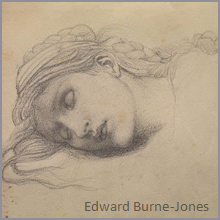




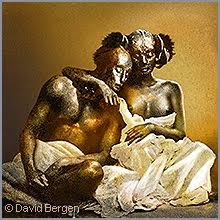
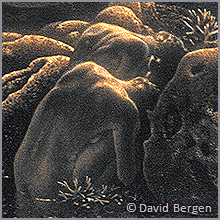

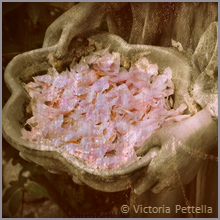
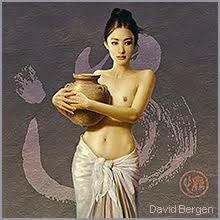



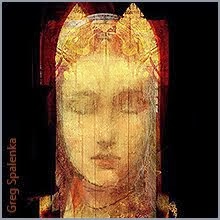
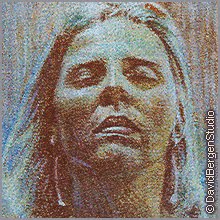











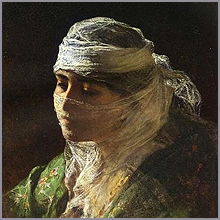




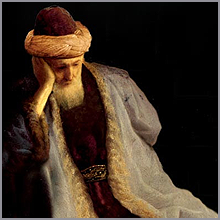






Emma, your deep insight into the feminine spirit is something from which I gratefully draw insights of my own. And thank you also for including in your post this 'secret' story of Helen, which in its own way reveals as much to us about the mystery of the feminine as Homer's own story. So often we chase after illusions which we mistake for the real thing. Our material world is full of 'phantom Helens'! And as you know, Man Ray is one of my favourite artists. Few artists in history have been able to portray the feminine spirit with such sympathy and integrity.
ReplyDeleteDavid, as you know so well, the theme of this particular post is my personal passion: the recognition by both men and women of the potential unity between soul and spirit through the mutual awareness that one mirrors the other, and that these two aspects are not to be separated. What flows from this is the vision of unity which is the alchemical wedding - and the true winning of Helen.
ReplyDeleteI can only agree that Man Ray was one of the few artists who could portray this feminine spirit with sympathy and integrity - but would like to add that you are also one of them!
You pay me a great compliment, Emma. But your blog has its role to play in that!
DeleteEmma makes a remarkable and insightful comparison between the conquest of Helen and the inner struggle we experience in our journey from separation to unity, or wholeness. I agree with Hawkwood that in our world we have many 'phantom Helens' and if there isn't one - many of us will create one! It may be revelatory for to us to question what ideal we are striving for and whether we are trying to possess something that cannot be possessed. We cannot truly own any thing or any one. Eventually all our forms fade and vanish. This thought may makes us contemplate the underlying Spirit that eternally remains.... I am not very knowledgeable about art or photography but I can certainly see the magical quality in Man Ray's photograph here especially in his use of light and shadow. Thank you Emma for a truly interesting blog!
ReplyDeleteYes, Joseph, so much of what we chase after is an illusion which we ourselves have created. For this reason I have for a long time thought that the phrase in the American constitution "the pursuit of happiness" is a rather unfortunate choice of words. If we actively pursue it, it will be forever just beyond our reach! It is not easy to sort out and recognize all those 'phantom Helens', but at least to be aware that they are phantoms is a good first step!
ReplyDeleteA note to my readers: the photo by Man Ray which originally accompanied this post, and mentioned in the above comments by Joseph and David, I have now replaced with the statue by Barrias. This beautiful statue, originally carved by the sculptor in different colours of marble, and in the version here cast in different metals with the figure carved in ivory, I feel also truly expresses the feminine spirit personified by Helen. It is the act of unveiling which so speaks to me in this work by the sculptor: the Helen who chooses to show herself to those who do not seek simply to have power over her.
ReplyDelete